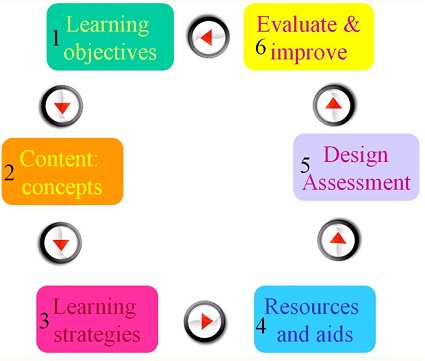A lesson plan is usually prepared by the teacher who conducts a lesson for students to make sure a lesson meets its objectives and learning takes place effectively. A unit consists of many lessons and takes a longer time period. This is the key difference between unit plan and lesson plan.
A lesson plan elaborates, basically, on objectives of a particular lesson and how teaching is planned in a way to achieve those objectives. A unit plan, on the other hand, covers a wider area; a unit that can include many lessons.
Key Takeaways
- A lesson plan is prepared by the teacher and focuses on the objectives of a specific lesson.
- A unit plan covers a wider area and includes many lessons, often taking a longer time period such as a semester.
- Lesson plans are more detailed and focus on specific activities, while unit plans focus on overall goals and content.
What is a Lesson Plan?
A lesson plan is usually prepared by the teacher who conducts a lesson for students to make sure a lesson meets its objectives and learning takes place effectively. A lesson plan includes lesson objectives, anticipated problems from students, time allocation for each task within the lesson, activity types, and interactions that take place during activities such as student-student, teacher–student, and material that will be used for the lesson, etc. Apart from these, a lesson plan may also include personal aims that focus on personal development of the teacher. Furthermore, a well-planned lesson may have a board plan that is to be displayed in the class for students to record. Thus, it is clear that a lesson plan paves the way for the teacher who conducts the lesson to be well organized beforehand.
A lesson plan ensures that lesson objectives are met and learning takes place effectively in the class. Furthermore, a lesson plan should eventually be connected to the goals of the unit.
What is a Unit Plan?
A unit consists of many lessons and takes a longer time period; for example, a semester. Planning a unit is thus a longer process compared to planning a lesson. This is usually undertaken by a sectional head or head of the department. But it involves discussion with teachers.
A unit plan is also important to show the main goals of a study unit and how lessons, evaluations and practical sessions connect to achieve the unit goals. Hence, unit plans are often used for discussions for syllabus reviews as well to explain the skills and knowledge students are expected to acquire towards the end. A unit plan usually consists of
vision/unit goals
unit content in detail
time allocated for the completion of each stage
how lessons/stages are designed to realize these goals collectively
pre and post-tests
cross-curricular connections, etc.
What is the Difference Between Unit Plan and Lesson Plan?
A lesson plan elaborates, basically, on objectives of a particular lesson and how teaching is planned in a way to achieve those objectives. A unit plan, on the other hand, covers a wider area; a unit that can include many lessons. Furthermore, a unit plan includes goals broken down in terms of lessons, the outline of the content intended to cover and cross-curricular references, etc. A lesson plan is usually prepared by the teacher who teaches that particular lesson the class. However, a unit plan is applicable to many teachers and those who play administrative roles in a school and is effective for a semester. Moreover, a lesson plan can include personal aims for teacher development, unlike unit plans.
Summary – Unit Plan vs Lesson Plan
A lesson plan is a teacher’s plan for teaching an individual lesson. A unit plan consists of many lessons and is longer than a lesson plant. This is the key difference between unit plan and lesson plan.
